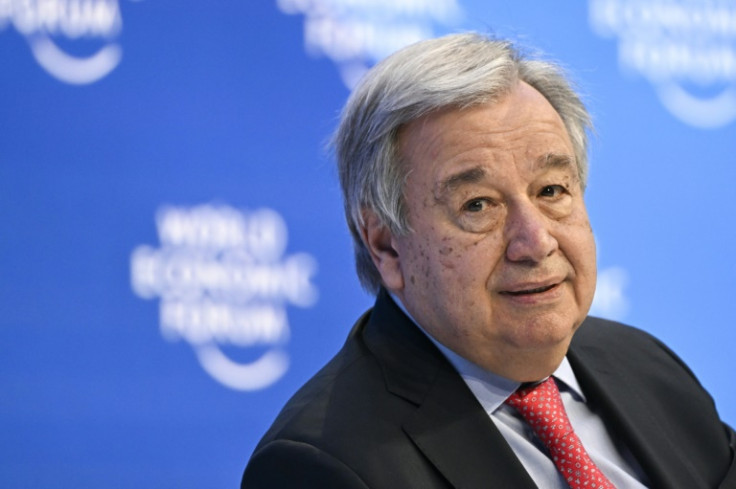
The United Nations (UN) released its most recent climate change report on Monday, emphasizing the risks associated with global warming.
The organization described the report as a "survival guide for humanity."
Assembled by the Intergovernmental Panel on Climate Change (IPCC), the synthesis report, conveys the UN's latest attempt to sound the alarm on the risks posed by climate change and not taking aggressive actions to halt global warming.
The document claims that "unsustainable energy and land use" is to blame for the global warming of 1.1 degrees Celsius above pre-industrial levels, which is very close to the 1.5 degree emergency threshold, Fox News reported.
"The rate of temperature rise in the last half-century is the highest in 2,000 years," UN Secretary-General António Guterres said in a video message Monday. "Concentrations of carbon dioxide are at their highest in at least 2 million years. The climate time bomb is ticking. But today's IPCC report is a how-to guide to defuse the climate time bomb. It is a survival guide for humanity."
"As it shows, the 1.5-degree limit is achievable. But it will take a quantum leap in climate action," he continued. "This report is a clarion call to massively fast-track climate efforts by every country and every sector and on every time frame.
In short, our world needs climate action on all fronts, everything, everywhere, all at once."
According to the report, every additional degree of warming will cause "rapidly escalating hazards" for civilization.
For instance, it forewarned of the catastrophic threats that climate change may bring about for ecosystems and human health, including more intense heat waves and heavier rainfall. According to the report, food insecurity will also rise as new wars and pandemics become more difficult to contain.
"Mainstreaming effective and equitable climate action will not only reduce losses and damages for nature and people, but it will also provide wider benefits," IPCC Chair Hoesung Lee said in a statement.
"This Synthesis Report underscores the urgency of taking more ambitious action and shows that, if we act now, we can still secure a liveable sustainable future for all."
"Transformational changes are more likely to succeed where there is trust, where everyone works together to [prioritize] risk reduction, and where benefits and burdens are shared equitably," Lee added.
"We live in a diverse world in which everyone has different responsibilities and different opportunities to bring about change. Some can do a lot while others will need support to help them manage the change."
The IPCC report also urged a rapid global phase-out of fossil fuels and substantial investments in clean energy.
The UN also urged Western countries to increase the funds and resources they commit to climate-related investments.
Nations made billion-dollar climate financial commitments for developing countries during the most recent UN climate summit in November, and they joined forces to urge private investors to increase climate financing.
"Every country must be part of the solution," Guterres added Monday. "Demanding others move first only ensures humanity comes last. The 'Acceleration Agenda' calls for a number of other actions. Specifically, no new coal and the phasing out of coal by 2030 in OECD countries and 2040 in all other countries; ending all international public and private funding of coal."
"Ceasing all licensing or funding of new oil and gas – consistent with the findings of the International Energy Agency," he continued.
"Stopping any expansion of existing oil and gas reserves; shifting subsidies from fossil fuels to a just energy transition; establishing a global phasedown of existing oil and gas production compatible with the 2050 global net-zero target."
According to the most recent International Energy Agency data, fossil fuels including coal, oil, and natural gas still make up the great majority of global energy use.
Almost 70% of the world's energy comes from these three sources, together with the vast bulk of electricity production (17% of total energy production).
© 2025 Latin Times. All rights reserved. Do not reproduce without permission.




